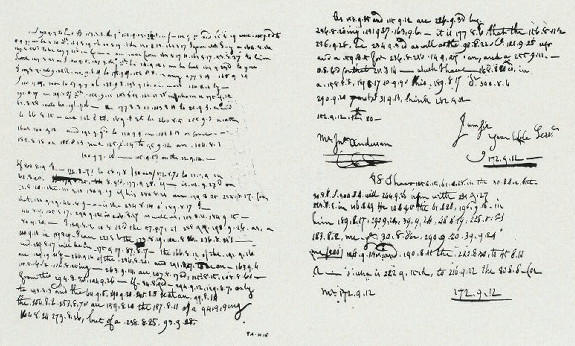
Benedict Arnold encrypted his messages to the British Army using Blackstone’s Commentaries on the Laws of England. Arnold would replace each word in his message with a triplet of numbers representing the page number, line number, and word position where the word might be found in Blackstone. For example:
The 166.8.11 of the 191.9.16 are 129.19.21 266.9.14 of the .286.8.20, and 291.8.27 to be on 163.9.4 115.8.16 114.8.25ing — 263.9.14 are 207.8.17ed 125.8.15 103.8.60 from this 294.8.50 104.9.26 — If 84.8.9ed — 294.9.12 129.8.7 only to 193.8.3 and the 64.9.5 290.9.20 245.8.3 be at an 99.8.14.
British Army Major John André could then look up the words in his own copy of Blackstone to discover Arnold’s meaning:
The mass of the People are heartily tired of the War, and wish to be on their former footing — They are promised great events from this year’s exertion — If disappointed — you have only to persevere and the contest will soon be at an end.
The danger in using a book code is that the enemy can decode the messages if he can identify the book — and sometimes even if he can’t. In the comic strip Steve Roper, a reporter once excitedly telephoned the coded message 188-1-22 71-2-13 70-2-11 68-1-25 19-1-6 112-2-10 99-1-35. Reader Sean Reddick suspected that this message had been encoded using a dictionary, with each triplet of numbers denoting page, column, and word number. He never did discover the book that had been used, but by considering the ratios involved and consulting half a dozen dictionaries he managed to break the code anyway — he sent his solution to a nationally known columnist, who verified his feat when the comic strip bore out his solution. What was the message? (Hint: In the comic, the reporter mentions significantly that the plaintext message was given to him by “the delivery boy.”)
